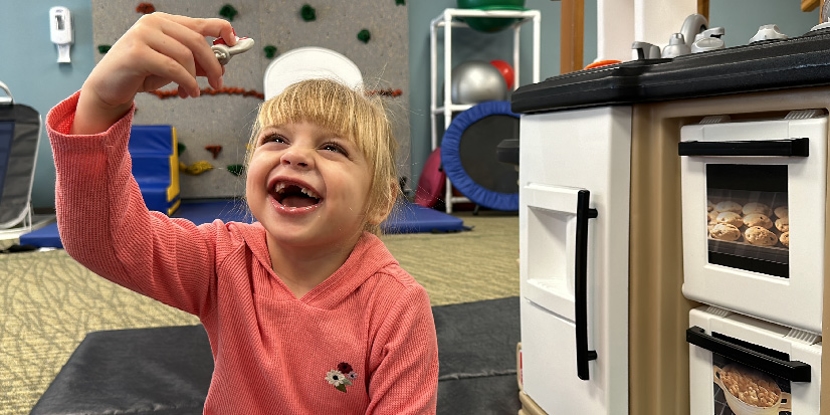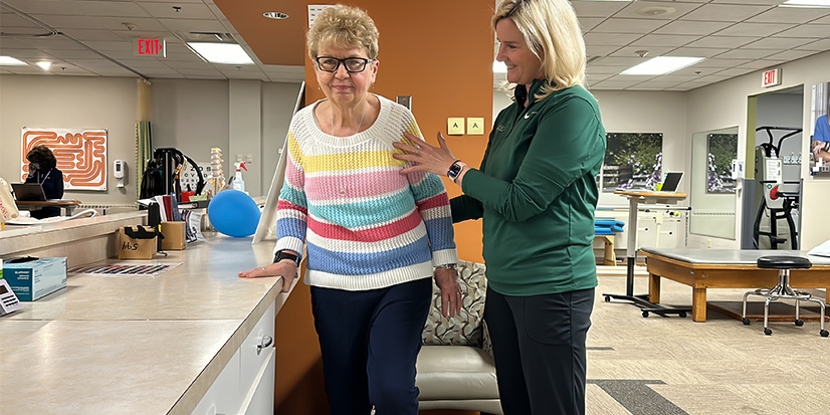Amora's Story: Pediatric Success
- Author: Amora S
- Date Submitted: May 20, 2024
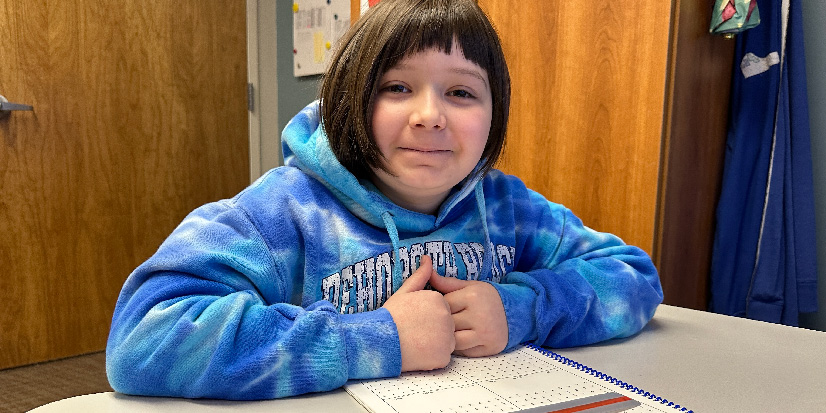

“She was putting her clothes on backward or inside out. She couldn’t button or zipper things. I knew something was wrong!”
As we talked with Jammie T. of Vernon, she recalled all the difficulties she and her granddaughter Amora had to overcome and are still dealing with today.
Finding a Diagnosis
“It was during the height of COVID, so I was her teaching Amora at home most of the time when she wasn’t in her virtual classes,” noted Jammie. “But I even noticed things wrong outside of the ‘classroom’ as it were.”
Jammie knew her granddaughter was struggling, but during a time when nearly everything was virtual, she was struggling to get help.
“I noticed she would have trouble with the simplest words or tasks - things a typical kindergartner should be able to do. But I was told these were atypical times and some kids just mature later than others - even still, I knew there was more to it than that, especially when she was having so much trouble with migraines and dressing herself.”
“After a lot of back-and-forth, we finally were able to get the school occupational therapist involved through a virtual evaluation and eventually have her vision checked.”
After a trail of specialists, it was determined that Amora suffered from convergence insufficiency (CI). Convergence insufficiency is a common, yet not frequently diagnosed, eye coordination problem that is caused by a lack of communication between the nerves and the muscles that control eye movements. The muscles surrounding the eye are strong, but the nerves that control these muscles are not sending the proper message to the muscles to turn the eyes inward enough to aim at the target (object, screen, etc.). Instead of coming together to focus on near objects, one or both eyes remain pointing away from the target.
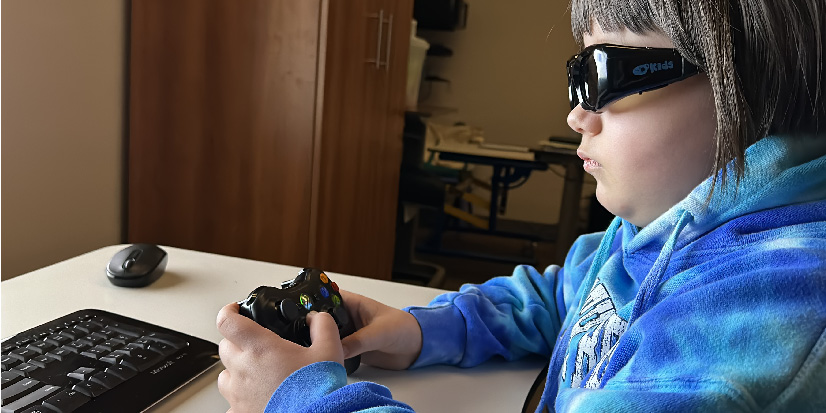
Learning to Live with Convergence Insufficiency
It’s important to note that at first, Amora passed her vision test with no trouble. A routine eye exam with the familiar 20/20 eye chart doesn’t diagnose CI. You can have perfect vision and still have CI — that’s why a regular eye exam won’t catch it. A specialized convergence insufficiency test is needed to measure the ability of your eyes to converge when looking at an object as it moves closer to your face.
“For Amora, she came to us as a referral from her school occupational therapist because she was struggling with some reading and writing tasks and her grandmother was reporting issues with dressing herself,” noted Lynne Dunay-Matysczak, OTR/L. “After our evaluation and the diagnosis with the optometrist - he recommended she have vision therapy.”
“CI can be quite common in young and even in older children - but without a diagnosis, children will try to adapt, but they will usually struggle with school work - reading, math, spelling, etc.”
“Handwriting can be troublesome too. Staying on the line, maintaining the shape of a letter or reversing them. Reading or taking notes is often an issue too. Older children tend to describe it as words swimming on the page or falling off the page.”
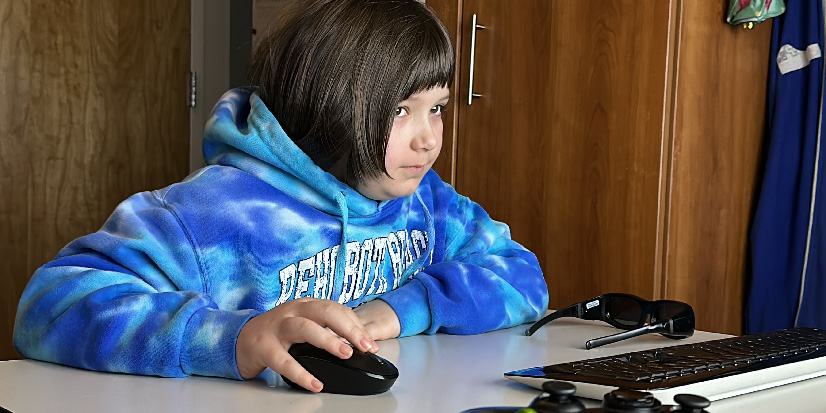
Looking Forward with Vision Therapy
Vision therapy focuses on improving binocular vision, oculomotor and visual motor skills for increased success with activities of daily living including reading, writing, and gross motor skills. A fully customized and personalized treatment program is designed to improve and strengthen visual skills - eye-tracking, focusing, convergence, eye-hand coordination, visual processing speed, and more.
“Today, Amora is now 8 years-old, and continues to use our computer system to help with her oculomotor skills, depth perception, and perceptual skills,” continued Lynne.
“She is also currently using colored overlays in her sessions here and in school to help with her reading. She uses colored graph paper to help with alignment of math problems.”
Parents and teachers might think children with convergence insufficiency have trouble reading or learning — but it’s actually a vision problem that needs to be treated.
People with convergence insufficiency may experience several symptoms when reading or looking at objects close-up. Convergence insufficiency symptoms may include:
- Headaches
- Double vision
- Tired or sore eyes
- Blurry vision
- Difficulty concentrating
- Squinting, closing or rubbing an eye.
- Dizziness
If your child has any of these symptoms, it’s important to talk to their eye doctor.
John P. Moses Esq. Pediatric Rehab Centers
Each year, Allied Services provides:
- 29,784 pediatric therapy appointments.
- 8,524 hours of treatment to children on Medical Assistance.
- Services for 1,200 children in the Wyoming Valley.
Each year, the Pediatric Program in Scranton and Wilkes-Barre provides life-changing care to children who are underinsured or uninsured. Sustaining costly services and ensuring access to care for children in our area has become increasingly challenging due in part to escalating healthcare expenses and restrictive reimbursement rates. The heavy annual expenses incurred by the program place these vital pediatric services at risk.
Now, with the help of AllOne Foundation & Charities and YOU, we're raising funds to sustain this vital program for children with disabilities, life-changing injuries, and chronic illnesses.
Pledge for Pediatrics
We need YOUR help. Now and in the coming years, we need the help of individuals, community groups, and businesses to ensure that the specialized rehab services found only at Allied Services are here when children and their families need them.
By pledging your support today, you will help the AllOne Foundation & Charities and Allied Services:
- Sustain specialized rehab programs for children with disabilities in the Wyoming Valley.
- Make cutting-edge rehab technologies available to children with disabilities.
- Provide access to care for underinsured and uninsured children with disabilities.
Please make checks payable to Allied Services Foundation, 100 Abington Executive Park, Clarks Summit, PA 18411.
To speak with Allied Services Foundation about planned giving, major gifts or other support, please call 570.348.1347.

